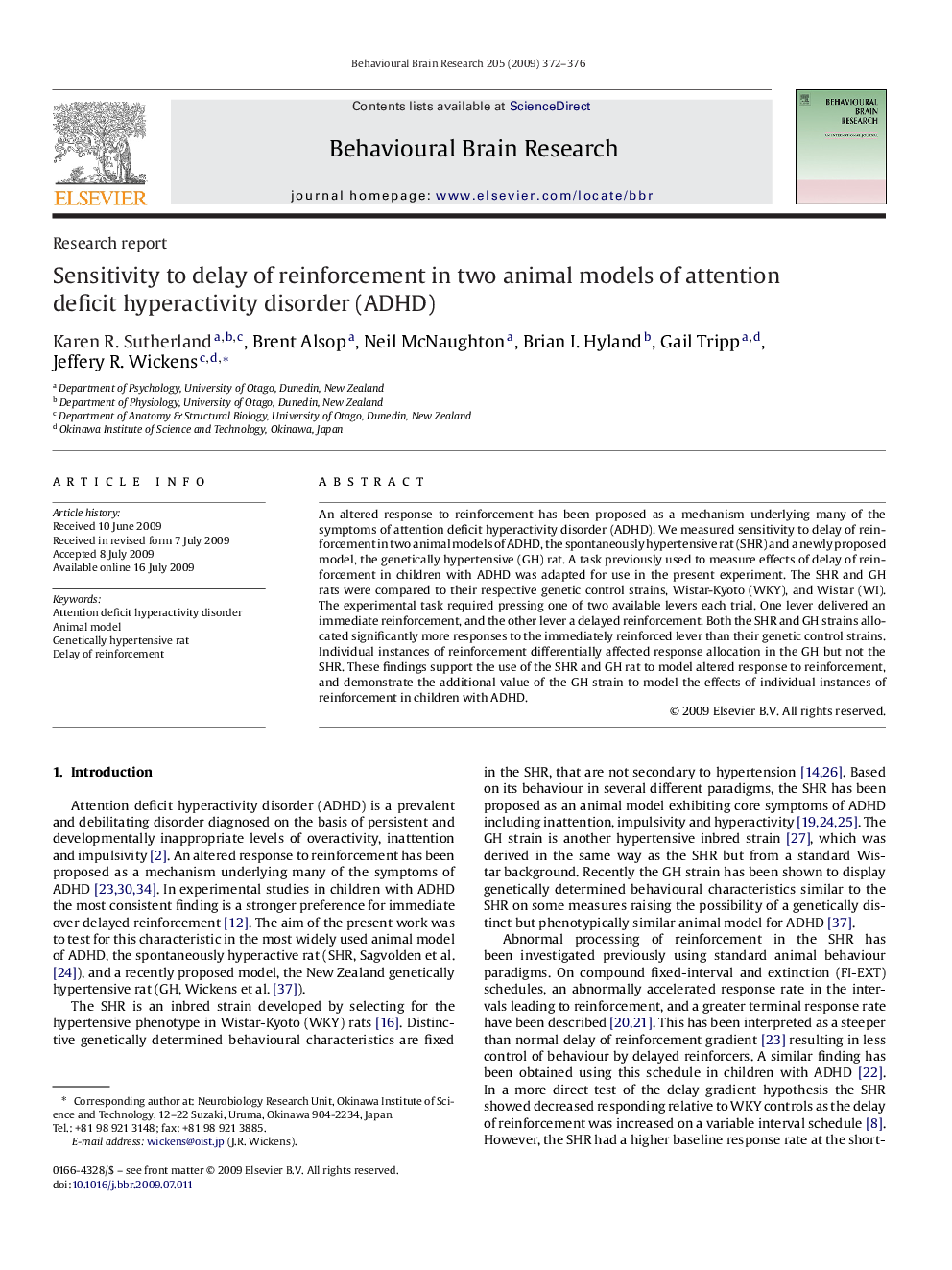| Article ID | Journal | Published Year | Pages | File Type |
|---|---|---|---|---|
| 4314407 | Behavioural Brain Research | 2009 | 5 Pages |
An altered response to reinforcement has been proposed as a mechanism underlying many of the symptoms of attention deficit hyperactivity disorder (ADHD). We measured sensitivity to delay of reinforcement in two animal models of ADHD, the spontaneously hypertensive rat (SHR) and a newly proposed model, the genetically hypertensive (GH) rat. A task previously used to measure effects of delay of reinforcement in children with ADHD was adapted for use in the present experiment. The SHR and GH rats were compared to their respective genetic control strains, Wistar-Kyoto (WKY), and Wistar (WI). The experimental task required pressing one of two available levers each trial. One lever delivered an immediate reinforcement, and the other lever a delayed reinforcement. Both the SHR and GH strains allocated significantly more responses to the immediately reinforced lever than their genetic control strains. Individual instances of reinforcement differentially affected response allocation in the GH but not the SHR. These findings support the use of the SHR and GH rat to model altered response to reinforcement, and demonstrate the additional value of the GH strain to model the effects of individual instances of reinforcement in children with ADHD.
